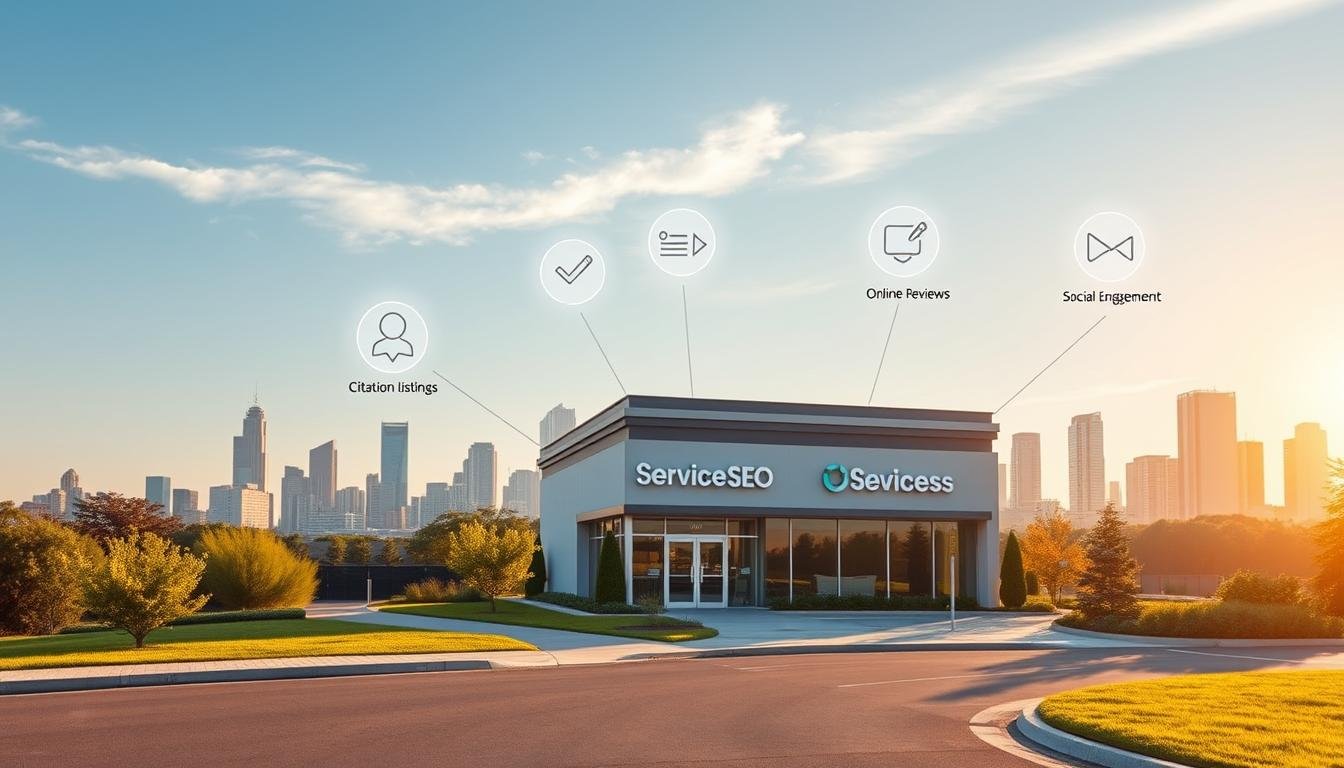Did you know 46% of all Google searches are local? This is a big chance for service area businesses to meet customers nearby. As a service pro, I’ve found local digital marketing is key to success today.
Optimizing for service areas has changed how businesses find customers. Whether it’s window cleaning or HVAC, showing up in local searches is vital. Local SEO for service area businesses helps attract customers right where they are.
The way people find service providers has changed a lot. Now, my online presence is more important than ever. People search for solutions close to home. By using smart local SEO, my business can shine in a busy market.
Key Takeaways
- Local searches drive nearly half of all Google queries
- Service area businesses need specialized digital marketing strategies
- Online visibility directly impacts customer acquisition
- Geographic targeting is crucial for service professionals
- Digital presence can significantly boost local business growth
Understanding Local SEO and Its Importance for My Business
As a service area business owner, I’ve found out how powerful local search engine optimization is. Local SEO isn’t just a buzzword—it’s a key strategy for reaching customers in my area.
Decoding Local SEO for Small Businesses
Local SEO helps me show up online for people in my area. It’s all about three main things:
- Relevance: How well my business fits what customers are looking for
- Distance: How close I am to where the customer is searching
- Prominence: My business’s reputation and how visible I am online
Why Local Business Listings Matter
Optimized local listings can really boost my business’s online presence. With 60% of smartphone users contacting businesses from search results, it’s a tool I can’t ignore.
Differentiating Local SEO from Traditional SEO
Local SEO is different from traditional SEO because it focuses on local searches. My strategy should include location-based keywords, local directories, and content that talks to my community.
Local SEO isn’t just about being found—it’s about being found by the right people at the right time.
Key Strategies for Optimizing My Local SEO

Creating a strong local SEO plan is key for businesses in specific areas. My strategy uses targeted methods to make businesses pop in local searches. This attracts more customers.
Creating and Optimizing My Google Business Profile
A well-made Google Business Profile is essential for local SEO success. I set up my profile to show my service area targeting clearly. Google lets businesses list up to 20 locations, making it easier for people to find me.
- Verify my business location
- Add detailed business descriptions
- Upload high-quality images
- Select accurate service categories
The Role of Keywords in My Local SEO Success
Choosing the right keywords is crucial for my local SEO. I use location-specific terms that people might search for. Local SEO needs strategic keywords that feel real and true.
Building Local Citations and Backlinks
I focus on getting local citations from trusted online directories. Having consistent business info boosts my local search. Working with local groups and getting mentioned in community sites also increases my visibility.
Online Reviews: Encouraging and Managing Customer Feedback
Customer reviews are vital for my local SEO. I encourage happy clients to share their stories and respond to all feedback. This not only helps my search rankings but also builds trust with new customers.
Measuring the Success of My Local SEO Efforts
It’s key to track how well my local digital marketing works. I use top analytics tools to see how my business shows up online. This helps me make smart choices to get more visibility.
Google Analytics and Google Search Console give me important stats. Tracking things like website calls and online forms shows me what works best. This helps me focus on the best local SEO strategies for my business.
Essential Tools for Performance Tracking
I use many tools to check my local search success. Google Business Profile Insights shows how people find and interact with my listing. Analytics platforms help me see how users behave. Watching search rankings and website traffic gives me vital info on my marketing.
Competitive Analysis Strategies
Knowing what my competitors do helps me find my own strengths and weaknesses. I keep an eye on their online presence and how they engage with customers. This helps me improve my local SEO and stay competitive online.
Adapting My Strategy
Turning data into useful changes is crucial. I regularly check my metrics, try new keywords, and tweak my Google Business Profile. I also adjust my content to better meet my local audience’s needs and boost my rankings.


